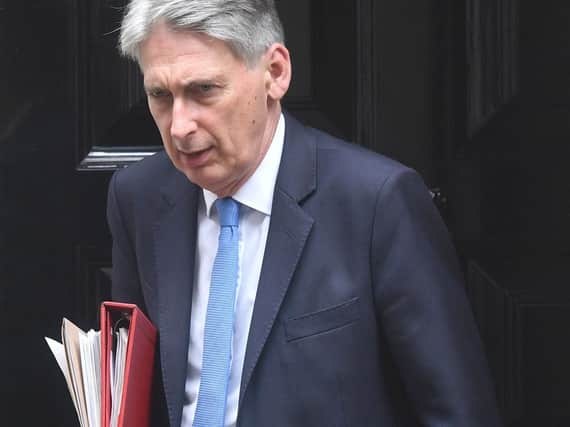The Budget 2018: 11 facts about this year's annual statement by the Chancellor of the Exchequer


Here are the facts about the Budget:
When is the Budget?
Philip Hammond's third Budget as Chancellor of the Exchequer will be next Monday, October 29, at about 3.30pm.
Aren't they usually on Wednesdays in the spring?
They used to be. Mr Hammond announced in 2016 he was moving it to the autumn. It is thought he chose to hold the Budget on a Monday for the first time since 1962 because he was worried about the imagery of staging it on Halloween.
What is the Budget?
Advertisement
Hide AdAdvertisement
Hide AdIt is an annual statement by the Chancellor to the House of Commons setting out the state of the nation's finances and the Government's proposals for changes to taxation.
Will anything else be announced?
The independent Office for Budget Responsibility will release its economic forecasts on subjects such as growth, inflation and employment for the next few years.
Will any tax changes happen straight away?
Some measures - usually including changes to taxes on alcohol and tobacco - come into effect on Budget Day or soon after. Others may come in months later. All have to be approved by Parliament in a Finance Bill, tabled following four days of debate on the Budget.
Who sees the Budget first?
Apart from the ministers and officials involved in drafting it, the monarch is traditionally the first to see the Budget, granting the Chancellor an audience the day before its release. The Budget is presented to senior ministers at a special meeting of Cabinet in 10 Downing Street hours before being unveiled to the House of Commons.
Why is it called a Budget?
Advertisement
Hide AdAdvertisement
Hide AdThe name comes from the old French word "bougette", meaning little bag. Statements on financial policy used to be brought to the Commons in a leather bag, but now the Chancellor uses a red despatch box.
What is the famous Red Box?
A wooden box lined with black satin and covered with scarlet leather was made for William Gladstone in around 1860 and was used by successive chancellors for more than 100 years. James Callaghan broke with tradition by using a new box in 1965 and Gordon Brown did the same in 1997. George Osborne used the Gladstone box for his first Budget in 2010.
Is it true the Chancellor can drink alcohol during the Budget speech?
Yes. By tradition, this is the only occasion when a minister can drink alcohol at the despatch box. Gladstone drank sherry with a beaten egg and Benjamin Disraeli had brandy. Geoffrey Howe in the 1980s preferred gin and tonic and Kenneth Clarke whisky, but more recent chancellors Gordon Brown, Alistair Darling and George Osborne have all drunk mineral water.
What are the longest and shortest speeches?
Advertisement
Hide AdAdvertisement
Hide AdDisraeli's 1852 statement took five hours, but he had a break. Gladstone spoke continuously for four hours and 45 minutes the following year. In 1867, Disraeli delivered a Budget speech lasting only 45 minutes. Modern chancellors tend to take around an hour.
Has anything ever gone wrong?
George Ward Hunt arrived at the Commons on Budget Day in 1869 to find that he had left his speech at home. In 1947, Hugh Dalton was forced to resign after leaking key parts of his statement to a reporter. Derick Heathcoat-Amory collapsed while delivering the 1960 Budget. More recently, Nigel Lawson stopped in his tracks after his staff put the pages of his statement in the wrong order.